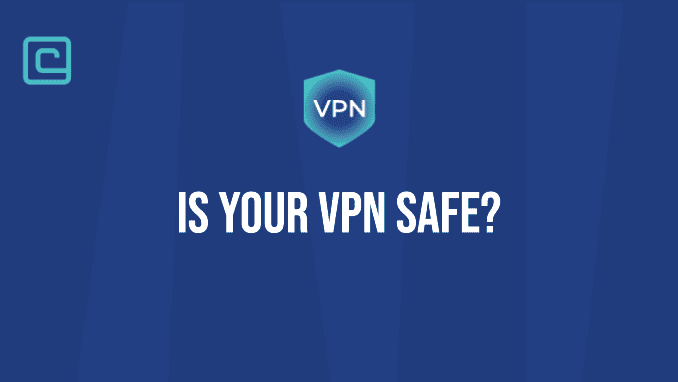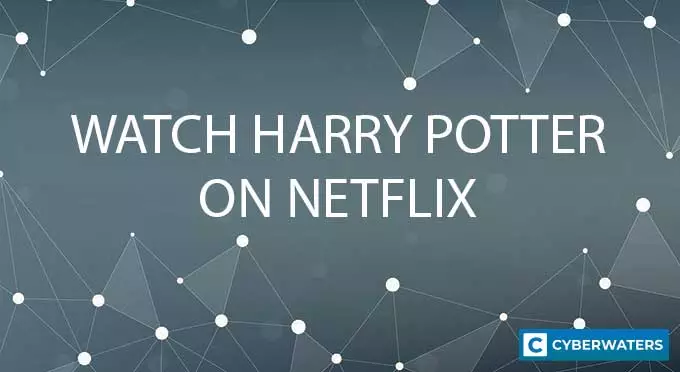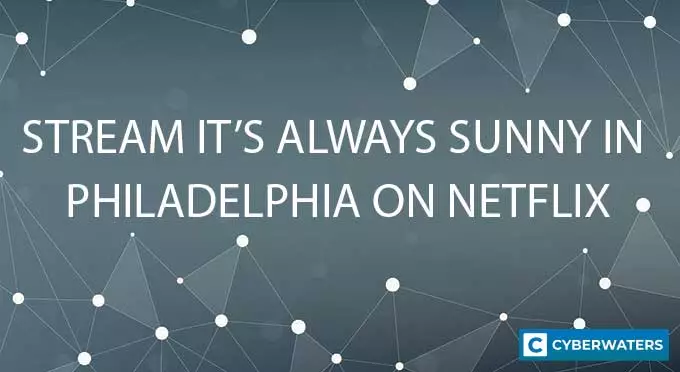Are VPNs Safe to Use in 2024? Don’t Use an Unsafe VPN!

If you are someone who values your online data and anonymity, you are probably wondering if using a VPN is safe. A VPN promises a safer browsing experience and better security against cyber threats. But from so many VPNs in the market, it’s natural to question the safety and reliability of VPNs.
A top-notch VPN can secure your internet connection and keep your browsing private. Yet, distinguishing the safe ones from the scams is crucial.
With this in mind, we’re here to delve into what makes a VPN trustworthy. We will address common concerns and guide you in selecting a VPN that can effectively safeguard your digital activities. We will tell you which VPNs are unsafe and which ones you should avoid using.
or discover other no-log secure VPNs
Are VPNs Safe?
Yes, VPNs are generally safe. They are designed to enhance your online security and privacy significantly. A reputable VPN provides strong encryption, which secures your internet traffic against eavesdroppers. VPNs route your connection through secure servers and hide your IP address. This makes it difficult for others to track your activities or find out where you are.
VPN safety varies widely based on the specifics of the VPN service you choose. When connected to public Wi-Fi, for example, the encryption offered by a VPN is essential. These networks are usually not secure. Malicious actors can easily access unencrypted data. If you use a VPN, even if a hacker intercepts your internet traffic, the encryption prevents them from understanding the data.
Moreover, the safety of a VPN is amplified by its ability to hide your IP address. Websites and online services cannot log your personal location and browsing habits. This increases your anonymity on the internet.
Test Your VPN Knowledge – Take A Quiz!
What Makes a VPN Safe?
The safety of a VPN hinges on several essential features:
- Strong Encryption: A safe VPN uses robust, up-to-date encryption algorithms to protect your data. AES-256 encryption is currently the standard for top security.
- No-Logs Policy: A strict no-logs policy means the VPN provider does not record any information about your internet activities. This is critical for maintaining your privacy.
- Secure Protocols: Protocols determine how data is transmitted over the VPN. Safe VPNs offer a variety of secure protocol options like OpenVPN, IKEv2/IPSec, and WireGuard.
- Kill Switch: In case your VPN connection drops unexpectedly, a kill switch automatically disconnects you from the internet. This prevents your data from being exposed.
- Leak Protection: Good VPNs have built-in measures to prevent DNS, IPv6, and WebRTC leaks that can accidentally reveal your true IP address.
- Independent Audits: Trustworthy VPN providers subject their service to independent security audits to verify their safety claims.
- Transparency: Providers that are clear about their operations, privacy policies, and the technologies they use are often more reliable.
- RAM-only servers: RAM-based servers ensure that the data is completely wiped out from the server each restart.
- Jurisdiction: A privacy-friendly location where a VPN provider is registered can impact user privacy.
Choosing a VPN that encompasses these features will significantly enhance your online safety.
| Safety Feature | Description | Importance |
|---|---|---|
| Strong Encryption | Uses AES-256 to protect data. | Essential for preventing data breaches. |
| No-Logs Policy | Keeps no records of user activity. | Key for user privacy. |
| Secure Protocols | Includes protocols like OpenVPN and WireGuard. | Critical for secure data transfer. |
| Kill Switch | Cuts internet access if VPN drops. | Prevents data leaks during VPN failure. |
| Leak Protection | Guards against DNS, IPv6, and WebRTC leaks. | Maintains user IP address anonymity. |
| Independent Audits | Third-party verification of security claims. | Ensures VPN’s safety claims are valid. |
| Transparency | Clear about policies and technologies used. | Helps users trust the VPN provider. |

Are VPNs Secure?
VPNs add a significant layer of security to your internet connection. VPNs are reliable for securing your data because of their encryption and network infrastructure. Let’s look at how VPNs use these components to create a secure online environment:
- Encryption: VPNs use strong encryption methods like AES-256, which is an encryption standard. This ensures that your data is coded in such a way that it would take a supercomputer millions of years to crack.
- Protocols: VPNs use secure protocols like OpenVPN, IKEv2/IPSec, and WireGuard to handle data. These protocols have different strengths and can optimize security and performance.
- Network Security: A VPN’s network security is critical. This includes securing the servers physically. It also involves managing the network using software. And it involves preventing unauthorized access or intrusions.
- Infrastructure: The configuration of a VPN’s server network can impact its security. Providers that have many servers offer more secure connection options. Providers that have servers with only RAM make sure your data is erased after each reboot.

VPN Safety vs VPN Security – What’s the Difference?
While both “safety” and “security” are central to a VPN’s purpose, they address different issues:
- VPN Safety is about protecting a user’s privacy and keeping their online actions secret from others.
- VPN Security means protecting data from cyber threats, like hacking, using technical methods like encryption and protocols.
| Aspect | VPN Safety | VPN Security |
|---|---|---|
| Focus | Preserving user privacy | Protecting data integrity and secrecy |
| Protection From | Tracking, data collection by ISPs | Hackers, data breaches |
| Key Features | No-logs policy, user-friendly policy | Strong encryption, secure protocols |
| Threat Scenarios | Identity theft, surveillance | Cyber attacks, man-in-the-middle attacks |
| Emphasizes | Trust and policy of the VPN provider | Technical robustness of the VPN solution |

What can happen if you use an unsafe VPN?
Using an unsafe VPN can lead to several risks:
- Data Breaches: Your sensitive information could be exposed or stolen.
- Activity Logging: Your browsing data could be logged and sold to third parties.
- Malware: Some unsafe VPNs can contain malware that compromises your device’s security.
- Identity Theft: If your data is breached, it could lead to identity theft and financial fraud.
- Surveillance: An unsafe VPN may cooperate with government surveillance, negating the purpose of using a VPN.
Always opt for a VPN that has a proven track record of protecting user data.
Which VPNs Are Safe to Use?
Keeping in mind the features that make a secure and trusted VPN, I’ve singled out five of the best providers in this regard. These five services are guaranteed to keep you safe online.
Here are the most secure VPNs:
- NordVPN — The most secure VPN in the industry and my top pick. NordVPN is based in Panama, doesn’t keep any logs, and has passed multiple audits. It includes a Threat Protection feature and offers obfuscated servers for extra privacy. NordVPN also offers private DNS servers and an automatic kill switch in its apps.
- Surfshark — Surfshark is an excellent alternative to NordVPN. Although it’s not as stacked with security features as my top pick, it comes with a handful of convenient security and privacy traits. This includes Camouflage Mode, CleanWeb, kill switch, and DNS and IP leak protection.
- Atlas VPN — Atlas VPN is a reliable and affordable provider with excellent safety features. Like NordVPN, this service can block malware and keep you safe. Atlas VPN also includes safety features like MultiHop+, SafeSwap servers, and a SafeBrowse feature.
- PrivateVPN — PrivateVPN is a trusted and safe VPN provider based in Sweden. The service doesn’t keep any logs, offers strong leak protection, and has a kill switch. It’s great for users who want a simple VPN.
- ExpressVPN — Based in the British Virgin Islands and with a strong no-logs policy, ExpressVPN is as safe as they come. It runs its own DNS on every server, offers strong encryption, and includes a Threat Manager security feature. Plus, with its TrustedServer technology, ExpressVPN ensures that no data is kept on its servers.
Are Free VPNs Safe to Use?
The safety of free VPNs can often be questionable. Here’s why:
- Limited Security Features: Free services may not offer the same level of security as paid versions, leaving you more vulnerable.
- Data Limits: Free VPNs often impose data and speed limits, reducing their effectiveness.
- Ad-supported: Many free VPNs use ads for revenue, which can infringe on privacy and be intrusive.
- Privacy Concerns: Some free VPN providers may log and sell your data to third parties to generate income.
- Unknown Costs: If you are not paying with money, you may be paying in other ways, such as with your data or security.
As free VPN services need to monetize somehow, their methods to do so can compromise user safety and privacy. It is generally safer to choose a reputable paid VPN provider that clearly states its user policy and privacy measures.
Which VPNs have compromised their safety in the past?
As an expert in the VPN industry, I must emphasize the importance of accurate and updated information.
However, please be aware that VPN security landscapes change frequently, and companies can make significant improvements after incidents.
Here are more examples of VPN providers that have faced security issues in the past:
- HMA (HideMyAss!): In the past, HMA received criticism for cooperating with law enforcement by logging and providing user data, which led to the arrest of a hacker. The incident raised concerns about the VPN’s privacy protections and logging policies. HideMyAss! has since updated its logging policy and has committed to increased user privacy.
- PureVPN: This service also came under scrutiny in the past when it provided user log data to the FBI, which assisted in the arrest of a cyberstalker. Similar to HideMyAss!, PureVPN has made changes to its policies, indicating an improvement in privacy measures. However, since then, they turned around making significant changes.
- Hotspot Shield: In 2017, Hotspot Shield was accused of practices that didn’t align with ensuring user privacy, including allegedly redirecting HTTP requests to affiliate networks. The company has made revisions and updates to its privacy policy following these claims.
- VPNBook: This free service provider has caused concerns due to allegations of logging user activity and displaying ads, which could be potentially unsafe or invasive for users.
- HolaVPN: Notably, HolaVPN has been criticized for its security practices. In 2015, it was discovered that this could potentially allow malicious actors to use someone’s IP address for nefarious purposes without their knowledge. Security-conscious users typically avoid such peer-to-peer VPN models as Hola VPN uses.
Conclusion
To sum up, everything I’ve outlined on this page, VPNs are generally safe and worth the money for everyone seeking to enhance their online privacy and security. A reputable VPN encrypts Internet traffic, protecting it from potential threats and masking users’ IP addresses.
However, it’s essential to choose a trustworthy VPN provider with a strict no-logs policy and robust security features to ensure maximum safety. Don’t go for free providers, and never compromise on vital privacy and security features.
Lastly, consider the inherent limitations of VPNs and stay vigilant against other cyber threats, such as malware, phishing, and social engineering attacks. And, if you need the top VPN that offers the best all-around security, including malware protection, I recommend NordVPN as the safest VPN in 2024.

| 🌐 Website: | nordvpn.com |
| 🏢 Headquarters: | Panama |
| 📍Servers/Countries: | 5800+ servers in 60 countries |
| ₿ Accepts Cryptocurrency | Yes |
| 💸 Deals & Coupons | Get 68% off + 3 months extra |
VPN Safety FAQ
Is Private Browsing Really Private?
Private browsing is not completely private. It can prevent your browsing history from being stored on your device, but it doesn’t hide your activity from websites, your internet service provider, or possible surveillance. For true privacy, a secure VPN in conjunction with private browsing is recommended.
Is NordVPN Safe?
Yes, NordVPN is safe to use. It offers strong encryption, a strict no-logs policy, and advanced security features such as Double VPN and Onion over VPN. It consistently ranks high for its security measures and has addressed past security concerns transparently.
Is Surfshark VPN Safe?
Yes, Surfshark VPN is considered safe. It uses industry-standard encryption and secure protocols, includes a kill switch, and follows a no-logs policy. Additionally, Surfshark has undergone independent audits to ensure its security and user privacy.
Is it Safe to Use a VPN on Your Device?
Yes, it is generally safe to use a VPN on your device. A reputable VPN can provide security against data breaches and enhance online privacy. However, make sure to use a VPN from a trustworthy provider with strong security features.
Can You Get Hacked With a VPN?
While a VPN greatly reduces the risk of hacking, it is not an absolute guarantee against it. Poorly configured VPNs or those with security flaws can still be vulnerable. Choose a VPN with strong encryption and security protocols for better protection.
Can You Be Tracked With a VPN On?
A VPN significantly reduces the likelihood of being tracked online by hiding your IP address and encrypting your data. However, certain tracking techniques, like cookies, can still track online behavior at an individual website level.
Are There Dangers With a VPN?
Using a VPN from an untrustworthy provider can present dangers such as exposure to malware, data selling, and inadequate protection from threats. Select a reliable VPN service to minimize risks and ensure online safety and privacy.
Are VPNs safe for online banking?
A VPN adds an additional layer of security when using your online banking. With a VPN connection, any payment details you input when banking are encrypted and protected from hackers and snoopers.
Are VPNs safe for business?
Yes, VPNs are generally safe for business when implemented and managed properly. A business VPN allows employees to securely access company resources and data from remote locations, ensuring data encryption and protection against potential cyber threats.
Does a Virtual Private Network protect you from viruses?
A VPN creates a secure tunnel and focuses on encrypting your traffic. It doesn’t provide direct protection against viruses or malware. To protect your device from viruses, you need to use dedicated antivirus software and practice safe online habits.
References:
- Paul Ferguson, Geoff Huston, “What is a VPN?”
- 5 Reasons Why You Should Not Use Free VPNs
- Do I need a VPN? Stay secure in the online world

| 🌐 Website: | nordvpn.com |
| 🏢 Headquarters: | Panama |
| 📍Servers/Countries: | 5800+ servers in 60 countries |
| ₿ Accepts Cryptocurrency | Yes |
| 💸 Deals & Coupons | Get 68% off + 3 months extra |
Cybersecurity and VPN researcher


